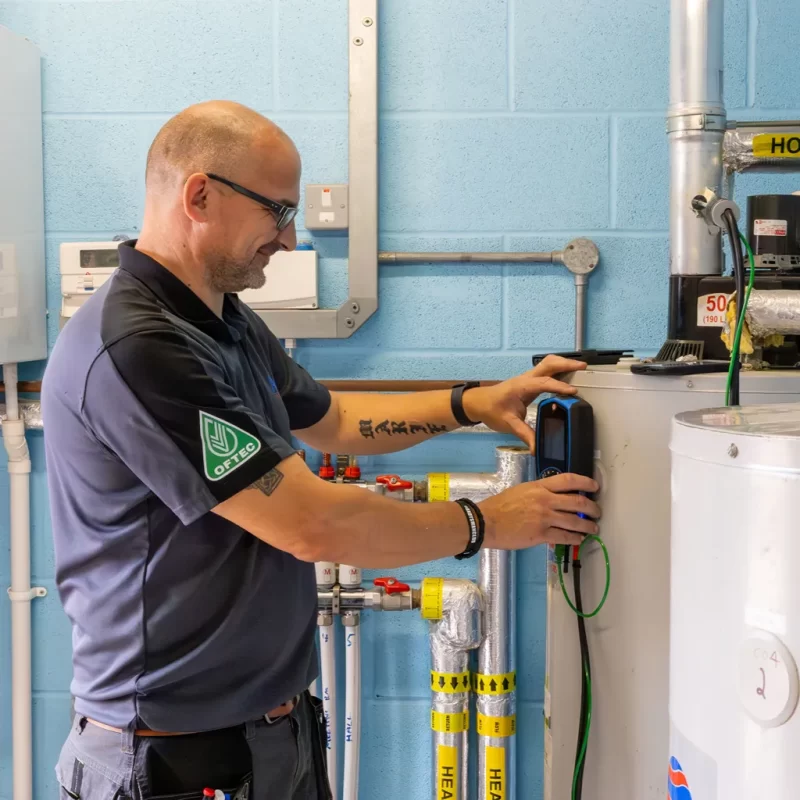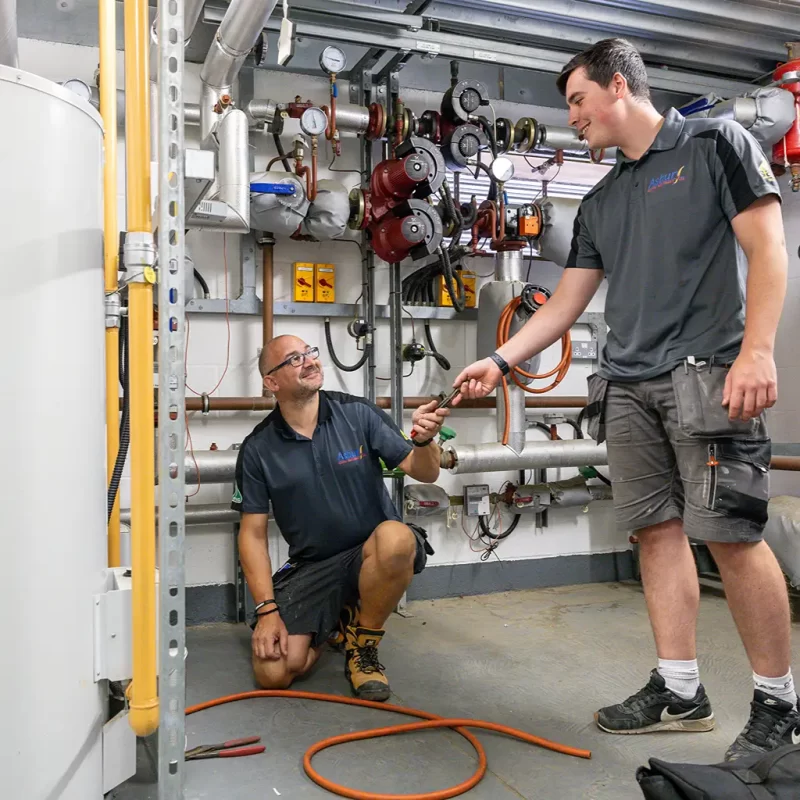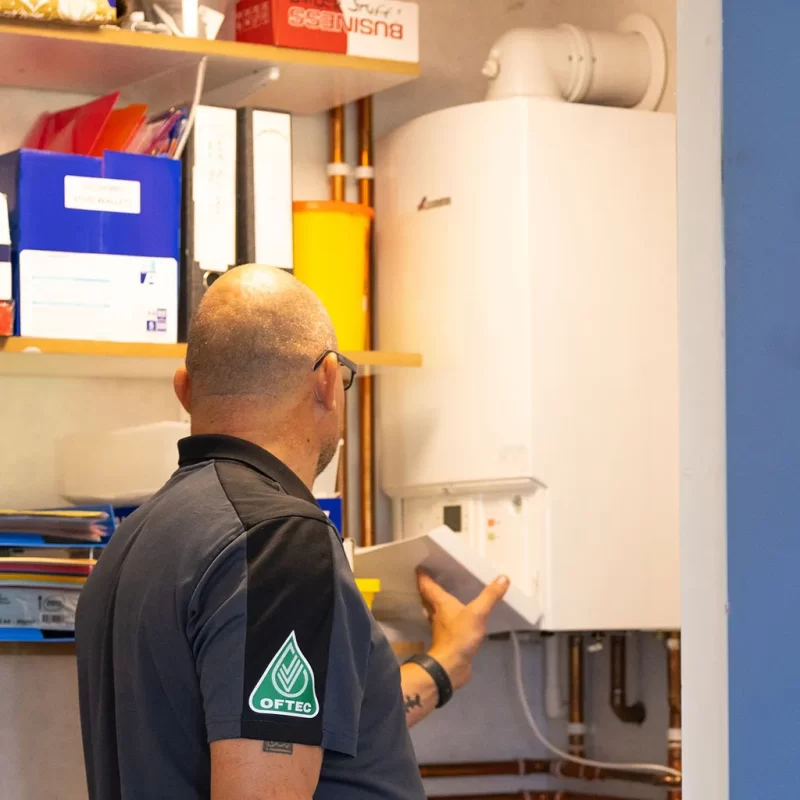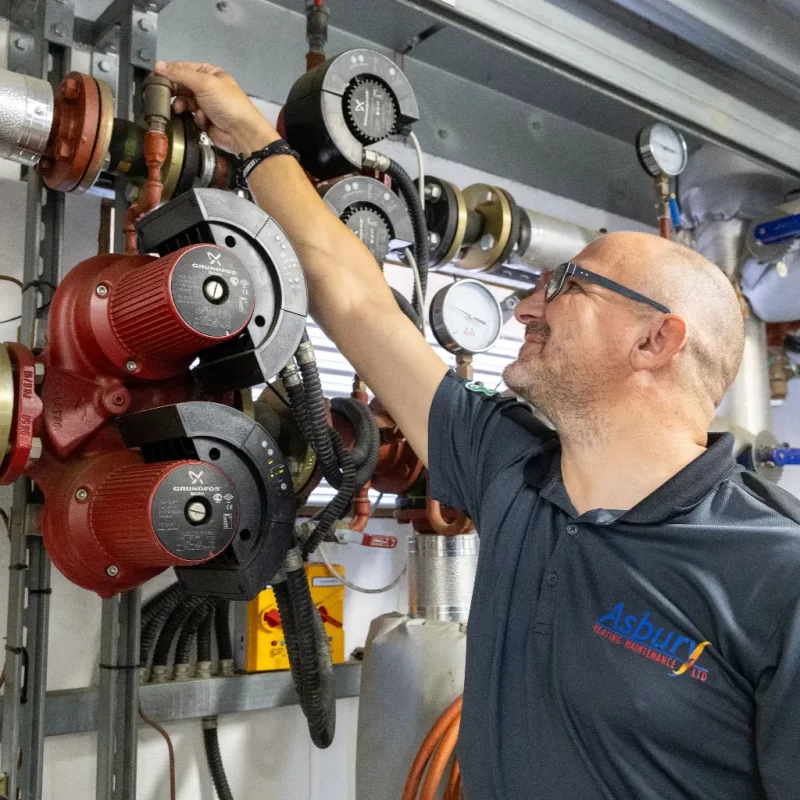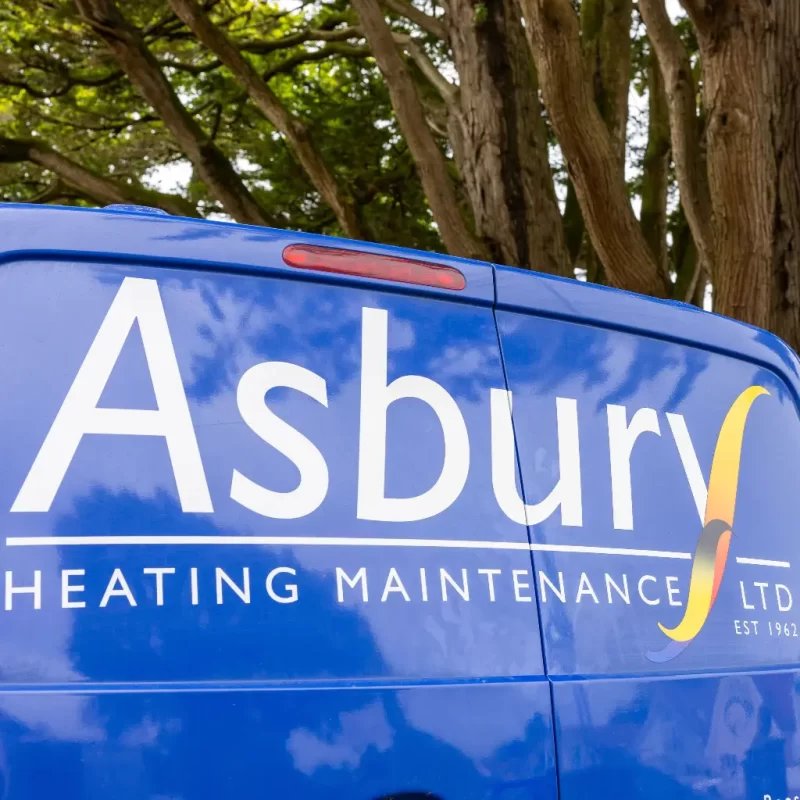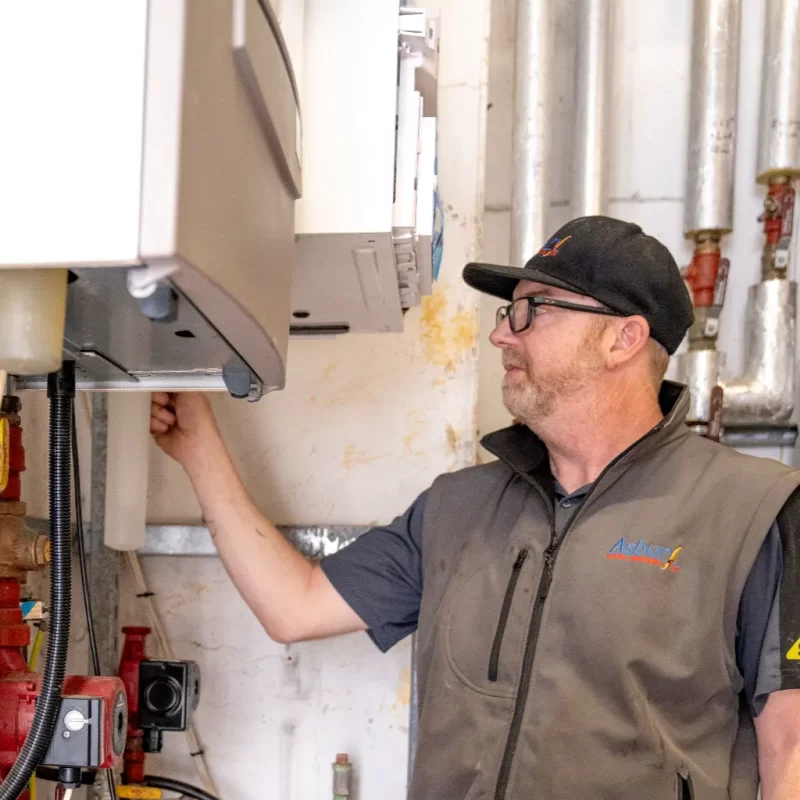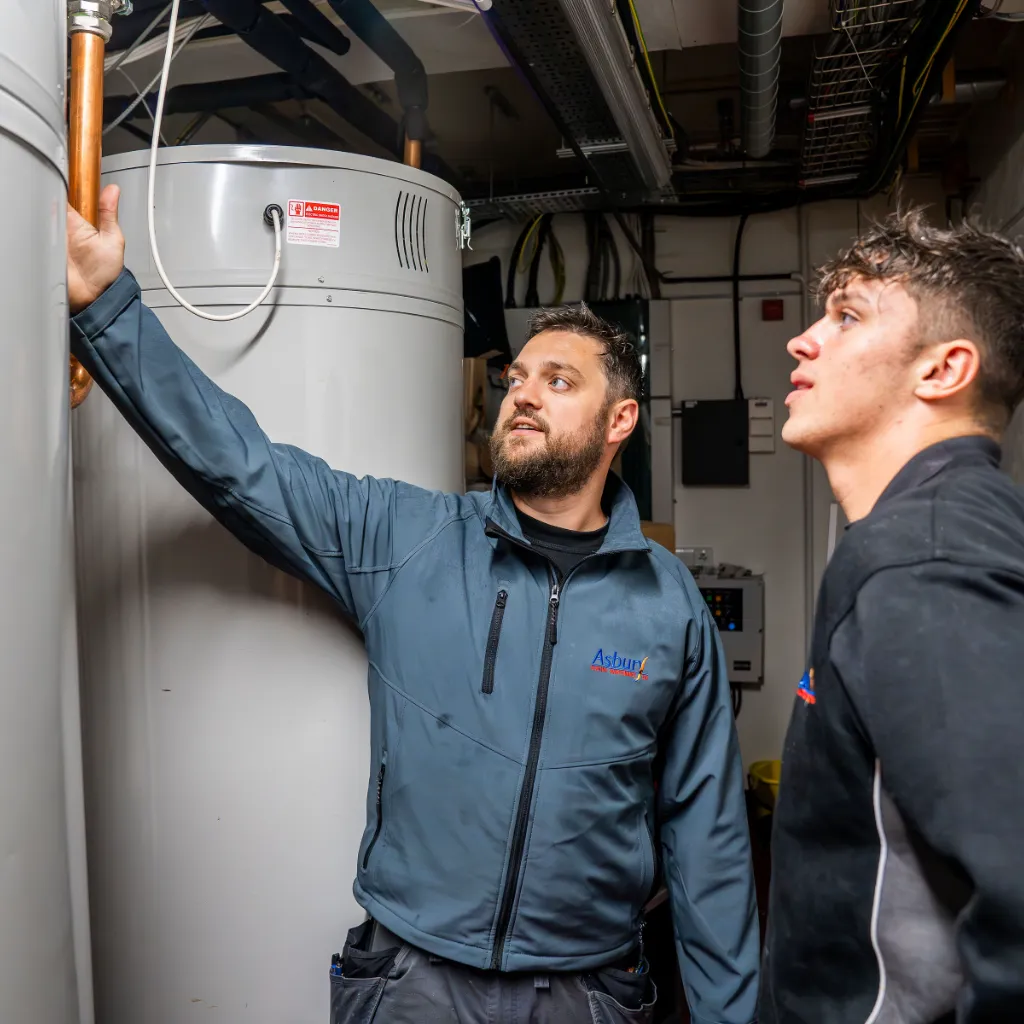
Commercial vs Domestic Boilers: What is the Difference?
Learning about commercial and domestic boilers helps you select the right system. Commercial boilers serve larger spaces and meet higher heating needs. Domestic boilers, on the other hand, are made for smaller properties.
If you’ve ever used a domestic boiler to heat an ample commercial space, you understand the struggle. It often underperforms, costs more, and breaks down frequently. The solution is a commercial boiler designed for your business. One that delivers the power and efficiency that’s required.
In this blog, we’ll look at the main differences in size, efficiency, installation, and maintenance. This will help you make a wise choice, whether you’re a business owner, facilities manager, or property manager.

Size & Capacity
One of the biggest differences between commercial and domestic boilers is their size and capacity. Commercial boilers usually start at about 70 kW and can go over 500 kW in large setups. This makes them suitable for multi-unit office blocks, schools, or light industrial sites. These systems can have an output ranging from 50kW to several hundred kW, easily handling the demands of multiple units or large spaces.
Domestic boilers, on the other hand, are designed to meet the needs of smaller spaces. With outputs typically ranging from 15kW to 35kW, they’re well-suited for single homes or smaller apartments. These boilers are more compact, with many models designed to fit neatly in a utility room or kitchen.
Efficiency & Performance
Both commercial and domestic boilers aim for energy efficiency in heating. Yet, they operate in different ways. In the UK, most domestic boilers are A-rated, meaning they typically exceed 90% efficiency. This ensures effective energy use while keeping household heating costs low.
Under the UK Government’s Boiler Plus regulations, all new gas boilers installed from April 2018 must hold an ErP A-rating. This rating means they must achieve at least 92% seasonal efficiency.
Commercial boilers, on the other hand, are designed for heavy-duty operation. This means their efficiency can vary based on the system type and usage. However, commercial systems are still subject to ErP (Energy-related Products) regulations.
This prompts manufacturers to:
- Embrace advanced technologies
- Enhance energy performance
- Reduce consumption


Installation Complexity & Time
Our Gas Safe registered engineers can often do a like-for-like combi boiler swap in about 4–6 hours. This includes removing the old unit, fitting the new wall-hung boiler, and commissioning it. Wall-mounted domestic boilers require fewer external pipes and include ready-made controls. This simplifies installation in tight utility spaces.
Commercial boiler installations, however, are a more involved process. These systems are often floor-standing and require more extensive planning. Depending on the building size, the installation could take several days and involve a team of engineers. Additionally, commercial installations must be carefully integrated with other building systems. For instance, integration with Building Management Systems (BMS) will help everything function properly.
If you need reliable and efficient installations, our experts are here to help. We specialise in installing commercial boilers. This ensures your system fits your needs and meets regulations.
Maintenance Needs
Under the Pressure Systems Safety Regulations (PSSR), commercial hot-water boilers require a full inspection by a qualified person. This must happen at least every 14 months for steam boilers and every 24 months for hot-water boilers, based on their operating pressure.
Commercial boilers are larger and more complex. They need special maintenance more often to remain efficient. These systems typically run for long hours, usually 24/7, to meet the demands of large buildings or multiple tenants. Regular servicing by skilled technicians is key to keeping commercial systems safe and efficient.
In contrast, domestic boilers are more straightforward and less demanding. The Health and Safety Executive advises having your domestic gas boiler serviced every year by a Gas Safe engineer. This keeps the warranty valid and ensures safe operation.
Our specialists offers commercial maintenance contracts to help keep your heating system in top shape. These contracts include regular check-ups and emergency repairs.


Cost Considerations
A standard 60 kW commercial boiler and its installation cost about £10,000 + VAT, says British Gas. In contrast, domestic combi installations usually fall between £1,500 and £3,200, including VAT. However, these systems are designed to last longer. They also provide long-term savings because they are more energy-efficient and last longer.
Commercial boilers have higher installation and maintenance costs. However, they efficiently and reliably serve large spaces. This leads to cost savings for businesses in the long run.
Domestic boilers, on the other hand, are more affordable to install and maintain. They’re made for smaller spaces. The upfront cost may be lower, but operational costs can increase over time. This is especially true if energy efficiency isn’t kept up.
Choose the Right Boiler for Long-Term Savings & Efficiency
Choosing the correct boiler, whether it be commercial or domestic, impacts comfort and running costs. Both systems offer heating and hot water, but they differ in size, efficiency, and complexity of installation. Understanding these differences is essential to selecting a system that suits your space and energy goals.
If you’re thinking about upgrading or installing a commercial boiler, Asbury has custom solutions for you. Our team focuses on boiler installations, maintenance contracts, and servicing. We ensure reliable performance and help you save money in the long run. We’re your trusted partner for commercial heating across Dorset, Hampshire, and Wiltshire.
Call 01202 745189 or get in touch for a free consultation or to receive a quote for your commercial heating needs.



